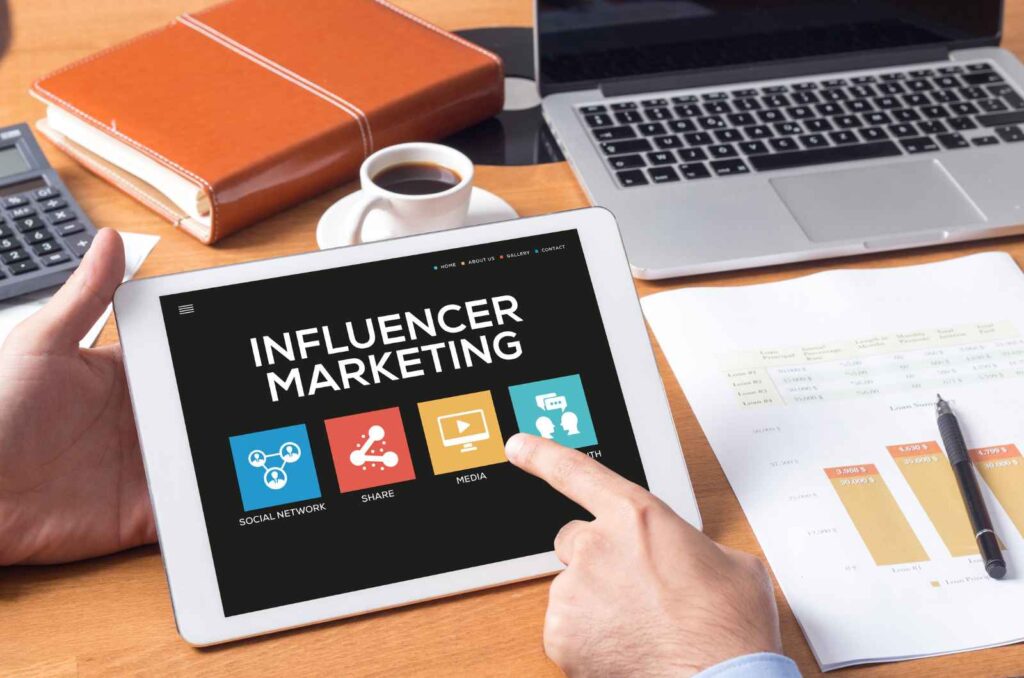
In today's digital landscape, influencer marketing has evolved from an experimental tactic to a strategic necessity. The influencer marketing industry is set to grow to approximately $24 Billion by the end of 2024, making it crucial for businesses to choose the right platform to manage their campaigns effectively. With hundreds of influencer marketing platforms available, selecting the right one can make the difference between campaign success and wasted resources.
Understanding Influencer Marketing Platforms
Influencer marketing platforms are comprehensive software solutions designed to streamline the entire influencer collaboration process. These platforms typically offer features such as influencer search and discovery, campaign management tools, analytics and reporting, and payment processing capabilities. They serve as centralized hubs where brands can discover, collaborate with, and manage influencers for their marketing campaigns.
Key Benefits of Using Influencer Platforms
Before diving into platform selection, it's important to understand why these tools are essential for modern marketing teams:
Time Efficiency: Platforms automate many time-consuming tasks, from influencer discovery to payment processing, allowing your team to focus on strategy and relationship building.
Data-Driven Decisions: Access to comprehensive analytics helps you measure campaign performance, track ROI, and optimize future partnerships.
Scalability: As your influencer program grows, platforms provide the infrastructure to manage hundreds of relationships simultaneously.
Risk Mitigation: Built-in verification tools and fraud detection help ensure you're partnering with authentic influencers who deliver genuine engagement.
Step 1: Define Your Business Goals and Budget
The first step in choosing an influencer platform is establishing clear objectives. As founder of CultureCon and The Creative Collective, Imani Ellis, explains: "The first thing we ask all of our brand partners is, What does a win look like?"
Common Influencer Marketing Goals
- Brand Awareness: Increasing visibility and reach among target audiences
- Lead Generation: Driving newsletter signups, demo requests, or other conversion actions
- Direct Sales: Generating immediate revenue through promotional campaigns
- Content Creation: Building a library of user-generated content for other marketing channels
Budget Considerations
HubSpot Blog Research found that marketers typically pay between $5K and $10K for nano, micro-influencers, and macro-influencers, with $10K+ budgets reserved for mostly mega influencers. Plus, almost 50% of marketing teams that invest in influencer marketing allocate between $100K to $500K.
Platform pricing varies significantly:
- Free/Low-cost options: $0-$500/month (suitable for small businesses)
- Mid-tier solutions: $1,000-$5,000/month (growing companies)
- Enterprise platforms: $5,000+/month (large organizations with complex needs)
Step 2: Determine Your Target Influencer Types
Understanding which types of influencers align with your goals is crucial for platform selection, as different platforms specialize in different influencer tiers.
Influencer Categories by Following Size
Nano-Influencers (1K-10K followers): Highly engaged, niche audiences with authentic connections
Micro-Influencers (10K-100K followers): Micro-influencers are social media content creators with an average of 10,000 to 100,000 followers who typically post about niche topics. They offer excellent engagement rates and are cost-effective for most businesses.
Macro-Influencers (100K-1M followers): Broader reach with professional content creation capabilities
Mega-Influencers (1M+ followers): Celebrity-level reach but often with lower engagement rates and higher costs
Step 3: Evaluate Platform Features and Capabilities
When comparing platforms, focus on features that align with your specific needs and workflow requirements.
Essential Features to Consider
Discovery and Search Capabilities: Look for platforms with robust filtering options including demographics, interests, engagement rates, and audience quality metrics.
Campaign Management Tools: Automated workflow features, communication tools, content approval processes, and deadline tracking.
Analytics and Reporting: Comprehensive performance metrics, ROI calculations, and exportable reports for stakeholder presentations.
Payment Processing: Streamlined payment systems, tax handling, and contract management features.
Integration Capabilities: Compatibility with your existing marketing technology stack, including CRM systems, social media management tools, and e-commerce platforms.
Platform Database Size and Quality
The size and quality of a platform's influencer database significantly impacts your ability to find suitable partners. With over 250 million creator profiles, the Modash database contains 50 million more influencer profiles than any other platform on this list. However, quantity isn't everything – focus on platforms that verify their influencers and provide authentic engagement data.
Step 4: Assess Platform Specializations
Different platforms excel in different areas, so choose one that aligns with your industry and goals.
Industry-Specific Platforms
Some platforms specialize in particular verticals:
- Beauty and Fashion: Platforms like AspireIQ and Grin have strong networks in these sectors
- Gaming and Tech: Specialized platforms for gaming influencers and tech reviewers
- Food and Lifestyle: Platforms with strong lifestyle influencer databases
Platform Type Considerations
All-in-One Solutions: Sprout Social Influencer Marketing fundamentally reshapes how brands and agencies approach influencer marketing, with influencer discovery based on brand fit, AI-powered search tools and in-depth insights
Marketplace Platforms: Focus primarily on connecting brands with influencers
Agency-Hybrid Models: Combine technology with human expertise and campaign management services
Step 5: Consider Your Team's Technical Capabilities
Evaluate your team's technical expertise and available resources when selecting a platform.
Self-Service vs. Managed Solutions
Self-Service Platforms: Ideal for teams with dedicated marketing resources and influencer marketing experience
Managed Services: Better for businesses new to influencer marketing or those preferring hands-off campaign management
Hybrid Approaches: Combine platform access with optional professional services and strategic support
Learning Curve and Training Requirements
Consider the time investment required to onboard your team. Some platforms offer extensive training resources, while others require minimal setup and provide intuitive interfaces.
Popular Platform Categories and Recommendations
Based on current market analysis, here are the leading platform categories:
For E-commerce Businesses
Platforms like Shopify Collabs, Upfluence, and GRIN excel at tracking sales attribution and integrating with e-commerce systems.
For Content-Focused Campaigns
Later Influence and AspireIQ specialize in content creation and user-generated content campaigns.
For Enterprise Organizations
Influencer Marketing Hub's top platforms like Traackr and Klear offer comprehensive enterprise features and large-scale campaign management.
For Budget-Conscious Businesses
Platforms like Creator.co and Afluencer provide marketplace-style connections with lower barrier to entry.
For Data-Driven Marketers
Sprout Social's influencer marketing solution offers advanced analytics and integrates with comprehensive social media management tools.
Implementation Best Practices
Once you've selected a platform, follow these best practices for successful implementation:
Start with a Pilot Program
Begin with a small campaign to test the platform's capabilities and your team's workflow before committing to larger initiatives.
Establish Clear Processes
Document your influencer outreach process, content approval workflows, and performance measurement criteria to ensure consistency across campaigns.
Focus on Relationship Building
The value of influencer marketing—especially to smaller businesses without huge social media profiles—is two-fold. The first advantage is the power of being recommended by someone people trust. Remember that successful influencer marketing is built on authentic relationships, not just transactional exchanges.
Measure and Optimize
Before launching an influencer marketing campaign, you need to decide what you want to accomplish. Establishing an end goal for your efforts is essential for determining how you'll measure it. Continuously track performance metrics and adjust your strategy based on data insights.
Common Pitfalls to Avoid
Platform Overcommitment: Don't sign long-term contracts without thoroughly testing the platform first
Feature Overload: Avoid choosing platforms with unnecessary complexity that your team won't utilize
Neglecting Integration: Ensure your chosen platform integrates with your existing marketing technology stack
Ignoring Support Quality: Consider the level of customer support provided, especially during onboarding
Future-Proofing Your Choice
The influencer marketing landscape continues to evolve rapidly. When selecting a platform, consider:
- AI and Automation Features: Platforms increasingly offer AI-powered discovery and campaign optimization
- Cross-Platform Capabilities: Ensure your platform supports emerging social media channels
- Compliance Features: Look for built-in FTC disclosure and international regulation compliance tools
- Scalability: Choose a platform that can grow with your business needs
Making Your Final Decision
Choosing the right influencer platform requires balancing multiple factors: your budget, team capabilities, campaign goals, and growth plans. The most expensive platform isn't always the best choice – focus on finding the solution that best aligns with your specific needs and provides clear ROI potential.
Remember that the platform is just one component of successful influencer marketing. The beauty of influencer marketing is that it works on any social media platform, and success ultimately depends on your strategy, relationship-building skills, and commitment to authentic partnerships.
Take advantage of free trials and demos to test platforms before committing, and don't hesitate to start small and scale up as you gain experience and see results. With the right platform and approach, influencer marketing can become a powerful driver of brand awareness, engagement, and revenue for your business.
click here for more info: https://influencermarketing.ai/
